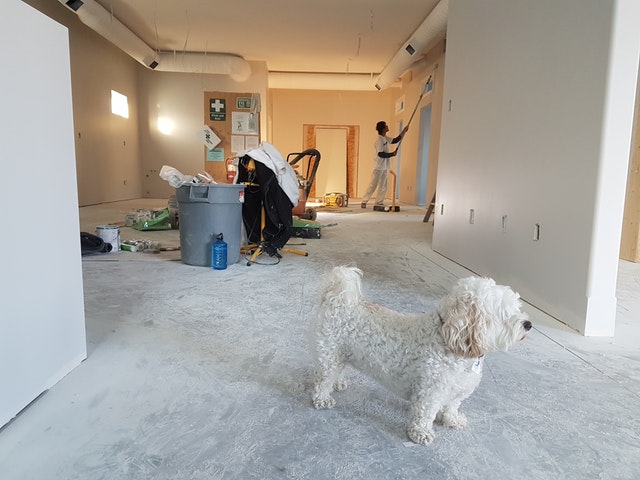 The drama of home and garden TV shows may be fun to watch, but no matter what you think, reality shows are not at all like real life. If you think it’s easy to buy a house that needs updating and turn it quickly for substantial profit, you might want to think again.
The drama of home and garden TV shows may be fun to watch, but no matter what you think, reality shows are not at all like real life. If you think it’s easy to buy a house that needs updating and turn it quickly for substantial profit, you might want to think again.
That doesn’t necessarily mean, though, that you should shy away from the idea of buying a “fixer-upper” — just that you should approach such a home purchase with eyes wide open.
Here are some valuable tips:
- Buying a house that needs cosmetic updates can make financial sense, particularly if you’re handy with a paintbrush, or don’t mind tackling DIY projects in your spare time. The willingness to make a house your home through ongoing TLC can be rewarding in terms of both dollars and good sense, if the structure is sound and all systems are in working condition.
- Modern appliances, updated lighting and water-saving plumbing fixtures and faucets — even new carpeting and tile — are all items that can be replaced over time as your budget allows. But if the existing home systems aren’t in working order, you may be in for big surprises that can be hard to handle.
- Buy a house that needs a new roof, major structural work, new HVAC or major kitchen renovation only if you can roll the work into a home improvement loan and, preferably, complete the rehab before you move in. If a house isn’t habitable, it’s really not a bargain!
- Always pay for a home inspection prior to making an offer. While an independent inspection is not a guarantee that all systems are “go,” it should allow you to plan the next move. The best strategy might be to walk away and look for another well-priced property.
- Remember that homes are priced under market for a reason. Sometimes the reason has nothing to do with physical problems and everything to do with the seller. Older homes in stable neighborhoods often represent great deals for sellers and buyers alike!
The best way to find a great deal, though, is to work with a professional REALTOR who is familiar not only with the local market, but who can advise you about real estate trends, financing options and the best ways to realize an appropriate return on your investment.
If you have dreams of becoming the next HGTV phenomenon, take the words of Chip and Joanna to heart: Their book confirms that they worked long hours, faced plenty of discouragement and experienced a fair amount of luck. In fact, as they note, their “overnight success” took many years!
After all, owning your own home, even if it does require some fixing, is still the American Dream!
 Buying a property out of foreclosure can be a very smart move, financially. But it can also be complicated, expensive, and stressful.
Buying a property out of foreclosure can be a very smart move, financially. But it can also be complicated, expensive, and stressful. While a kitchen herb garden or pot-grown tomatoes may be commonplace in both suburban backyards and on urban condo patios, an increasingly large number of homeowners look to backyard farming as a way to relieve some of the stresses of modern life. Other benefits include cutting grocery bills, living a more sustainable life, and teaching children about food.
While a kitchen herb garden or pot-grown tomatoes may be commonplace in both suburban backyards and on urban condo patios, an increasingly large number of homeowners look to backyard farming as a way to relieve some of the stresses of modern life. Other benefits include cutting grocery bills, living a more sustainable life, and teaching children about food. Is it worth it to add smart appliances or automated features if you’re selling a home? Just how much connectivity do buyers want? And what exactly do the terms refer to in terms of home updates.
Is it worth it to add smart appliances or automated features if you’re selling a home? Just how much connectivity do buyers want? And what exactly do the terms refer to in terms of home updates. Multi-generational households and the growing preference on the part of many retirees toward “aging in place”have altered home design in recent years. Interiors are more open, more functional and more adaptable that they were even a decade ago. Spaces tend to be less formal; living space is better integrated with work space like the kitchen, and rooms tend to serve more than once purpose, both for quiet pursuits and for family gatherings.
Multi-generational households and the growing preference on the part of many retirees toward “aging in place”have altered home design in recent years. Interiors are more open, more functional and more adaptable that they were even a decade ago. Spaces tend to be less formal; living space is better integrated with work space like the kitchen, and rooms tend to serve more than once purpose, both for quiet pursuits and for family gatherings. This summer, quality homes are being scooped up almost as fast as they’re being listed – and for top price. Yes, it’s a seller’s market out there, which is great news if you’re planning to list your home. For those looking for a home, the competitiveness can be frustrating and aggravating.
This summer, quality homes are being scooped up almost as fast as they’re being listed – and for top price. Yes, it’s a seller’s market out there, which is great news if you’re planning to list your home. For those looking for a home, the competitiveness can be frustrating and aggravating. Rules and covenants of a homeowners association can be a bit overwhelming, especially for a first time homeowner. Understanding that the regulations are designed to protect the value of your home helps make some restrictions easier to live with.
Rules and covenants of a homeowners association can be a bit overwhelming, especially for a first time homeowner. Understanding that the regulations are designed to protect the value of your home helps make some restrictions easier to live with. Nearly 70 million American households include at least one pet, but most prospective buyers won’t want to see evidence of pets in a home on the market.
Nearly 70 million American households include at least one pet, but most prospective buyers won’t want to see evidence of pets in a home on the market. Looking for your new home can feel like a daunting task, especially if it’s your first time going through the home buying process. Sometimes, all of the choices may feel overwhelming. You want to make the best decision for yourself and your family.
Looking for your new home can feel like a daunting task, especially if it’s your first time going through the home buying process. Sometimes, all of the choices may feel overwhelming. You want to make the best decision for yourself and your family.  The closing process for a home purchase is an exciting time. The home is finished, the purchase is ready to be finalized and it’s almost time to move in. The final steps of the closing process ensures both parties are able to meet their requirements and all the paperwork is in place and verified.
The closing process for a home purchase is an exciting time. The home is finished, the purchase is ready to be finalized and it’s almost time to move in. The final steps of the closing process ensures both parties are able to meet their requirements and all the paperwork is in place and verified.